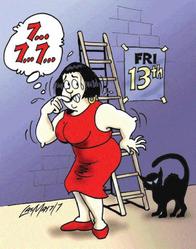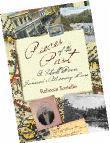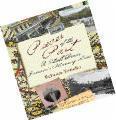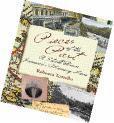
Monday is not a good day to marry.
If two pregnant women walk or sit together one of their babies will be born dead.
You are not to plant night jasmine near your house or it will draw the strength from its occupants as will a paw-paw tree. Good trees to plant include mango, avocado pear, ackee, breadfruit, naseberry, sweet sop and soursop, coffee, banana, coconut, orange, grapefruit and lime.
If you are building a house, be sure to construct the front door to face sunrise and the back door to face sunset, exactly opposite to each other.
To get rid of an unwanted visitor, you must sprinkle a broom and leave it behind the door.
(Jamaica Folk Customs and Beliefs (1991)
Dr. Rebecca Tortello, Contributor
Jamaican folk customs and superstitions permeate many aspects of Jamaican life. In Jamaica, there are beliefs about everything from death to good luck to horse racing, to what makes you laugh and cry. Well recognized as one of the most religious countries in the world, it is not surprising then that we are also known as a very superstitious people. The rate of sales of the numerous tonics on the market along attests to this. For many, there is a fine line between religion and superstition - both are ways people make sense, impose order on the universe andtry to have a say in their own destiny, It is interesting to note that customs fueled by superstition do not always defy explanation. In fact, they often have a certain logical structure underlying belief. For example, as Olive Senior discusses in her book The A-Z of Jamaican Heritage (2003), the practice of pouring rum on the earth before digging into it to make a grave or a house might have been connected to the need to defer to the African spirit of the earth so as not to antagonise her (p. 192).

Part of Jamaican folklore, these beliefs and practices form a network of customs which have survived over time through oral retelling. An interesting mixture of logic and blind faith, they are passed on from generation to generation often accepted without question. It is difficult to trace the origins of these beliefs as they, like many other aspects of Jamaican life, were creolised, reflecting an amalgamation of the belief structures of the different groups who have come to call this island home. However, scholars often cite Africa's influence as the strongest, which is understandable given the large percentage of Jamaicans of African descent and the oral nature of African culture. Perhaps the area in which African retention is strongest and where protection from harm/self-preservation is an abiding theme, is death and burials which were dealt with in detail in a previous article. This article looks at Jamaican superstitions and folk beliefs in general touching on the topics of medicine, love and marriage, pregnancy, luck and the interpretation of dreams.
Medicine, Bush Doctors and Taino Beliefs
Another example of logic fuelling custom comes in the practice of growing plants that could be used for medicinal purposes. In the past, many Jamaican households, especially those in rural areas, made a point of growing plants that could be used as first aid, often when made into "bush teas". Cerasee, mint, ginger, fever grass, and sinklebible (aloe) and ganja were among the most prevalent. Cerasee is believed to cure gripe and wash out the system, while ginger is used to cure nausea and mint, to stop vomiting. Fever grass as one would expect, is believed to cure fevers, and aloe, the common cold. Ganja is believed to cure all ills, but particularly fever, colds and asthma (Campbell, 1974, pp. 60-65).
Medicine may be one of the strongest areas of superstition and African cultural retention as during slavery the only doctors available to the slaves were other slaves who had schooled themselves in traditional African healing. In addition, Jamaica and Africa share tropical climates and therefore plants found in Jamaica would have borne similarities to those found in Africa. In some cases they wound up treating the whites as well. After Emancipation people with training (and even some without) set themselves up as 'bush' doctors, balmists or Obeah men/women. Superstition and the link between mind and body were recognised as integral to healing then, as it still is for many now. Therefore much healing occurred through the use of what Senior (2003) calls "offensive and defensive magic (charms, baths, special ceremonies)" and certain plants and beads like the red John Crow beads were considered to have mystical powers which is why they were often incorporated into the clothes worn by those considered to be healers. Many healers often also relied on visions to do their work (p. 312).
Remedies
Medicine is also the area where some Taino beliefs have been retained. This could be because there were similarities in practice as well as materials. As in African tradition, Taino women were known to be experts on the use of herbs to cure illness. According to Sir Hans Sloane, an English doctor who collected and recorded Jamaican flora and fauna in the 17th Century, the black population of Jamaica use the "same remedies for the same diseases in Mexico and Brazil" where other Amerindians lived (as quoted in Senior, 2003, p. 313).
Two general medicine-related folk beliefs are (i) the rubbing with white rum will prevent the catching of a cold and (ii) if you tie a lime leaf on the head you will cure a headache.
As is the case with folk customs from other countries, commonalities are found in Jamaican folk beliefs across different stages of life. As you will see from reading through the following listing of more Jamaican folk customs and superstitions (found in the Jamaica Information Service (JIS) produced Jamaican Folk Customs and Beliefs (1991) and also online from the Folklore of the Negroes of Jamaica (no date), these include but are not necessarily limited to panaceas, fortune telling, protection from danger, advice on how not to tempt fate, and the interpretation of symbols and signs.
Love and Marriage

It is good luck for first cousins to marry as "cousin, cousin boil good soup." It is however not good luck for second cousins to marry.
A woman who sits on a table will never marry, and neither will a man who turns down his hat on a table or bed.
If a person wants to know the depth of love someone feels for him/her, knot a thread a few times and place a flame over it. If the flame passes over the knots the love is strong.
If you open an umbrella in your house you will not marry.
May is an unlucky month to marry, and Monday and Saturday are unlucky days on which to be married. If you marry on Monday it is believed the husband and wife will quarrel to their deaths, while if you marry on a Saturday it is believed the husband will die. It is also bad luck to marry on your birthday.
Wednesday is the luckiest day to get married and the best times on that day are 8:00 a.m., noon and 4:00 p.m.. Sunday at 4:00 p.m. is also a lucky day and time to get married.
If anything is broken during the wedding reception, the marriage will be an unhappy one.
Dreams
If you dream about fire, it means confusion
If you dream about new shoes,it means you will have a new lover.
If you dream about ankles, it means your enemies are planning to destroy you.
If you dream about a wedding, it means there will be a funeral and if you dream about a new house it means there will be a death.
Pregnancy

Pregnant women should never use a needle and thread or the unborn baby will be tied up in the umbilical cord.
Pregnant women should not walk under a wire. If they do, the baby will be strangled in the umbilical cord. They must step on the cord instead.
Pregnant women should never look at a dead body or the baby will die.
If a pregnant woman scratches her body while yearning for something to eat, the baby will be born with a mark at that same spot and it may resemble the food the mother craved.
Pregnant women should not stare up at a tree or the baby will be born cross-eyed.
If a pregnant woman climbs over a fence her child will be a thief.
Birth
If you say that an infant is beautiful, he will grow ugly. Should you say he is ugly, he will grow handsome.
Children before they are able to talk understand the language of animals.
The navel string must not be allowed to fall on the floor. It must be guarded by the mother and buried in the ground between three days and a year after the birth of the child. A tree is to be planted in that spot, known as the child's navel string tree, and if it is damaged or destroyed the child must be compensated. If the property is sold a new tree must be planted for the child from the sucker of the original tree.
A baby born with a caul (the inner membrane enclosing a fetus which may be found on the baby's head at birth) will be able to see duppies (spirit of the dead) without being harmed by them.
A new mother is not to bathe or wash her hair for the first three months after delivery as her pores are believed to be open and she is very susceptible to colds. Any cracks or holes in her house are to befilled for the same reason.
A child born during a leap year will be lucky.
A baby boy who resembles his mother will be lucky and so will a baby girl who resembles her father.
Luck

White dots on the nails and grey hair on a young person mean good luck.
Do not turn your hat down on a table or a bed, it will bring bad luck.
If your right eye dances you are going to laugh. If your left eye dances you will hear bad news, or something will happen that makes you cry.
Sources: Campbell, S. (Summer, 1974). "Bush Teas - A Cure All" in the Jamaica Journal, vol 8, 2-3, pp. 60-65, Folk-Lore of the Negroes of Jamaica: (Continued) Folklore, Vol. 16, No. 1 (Mar. 25, 1905), pp. 68-77 http://links.jstor.org/sici?sici=0015-587X%2819050325%2916%3A1%3C68%3AFOTNOJ%3E2.0.CO%3B2-K&size=LARGE, Folklore of the Negroes of Jamaica. II (Continued) ;Folklore, Vol. 15, No. 2 (Jun. 24, 1904), pp. 206-214; http://links.jstor.org/sici?sici=0015-587X(19040624)15%3A2%3C206%3AFOTNOJ%3E2.0.CO%3B2-O, Author unknown. (1991) Jamaica Folk Customs and Beliefs. Kingston: Jamaica Information Service (JIS), Senior, O. (2003). The Encyclopedia of Jamaican Heritage. Kingston: Twin Guinep Publishers.r.
Collect the 'Pieces of the Past' book
We know you love the series. Own a copy of this amazing collection of the first articles in Pieces of the Past: A Stroll Down Jamaica's Memory Lane by Rebecca Tortello - now available in Sangster's Book Stores islandwide and online at www.sangstersbooks.com.

